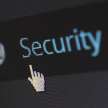Staying Safe from Hackers
Protecting Your Digital Security

Introduction
In today's interconnected world, the threat of hackers and cyber attacks has become a significant concern. Safeguarding your digital security is crucial to protect your sensitive information, financial assets, and personal privacy. This article provides practical tips and insights to help you stay safe from hackers and enhance your overall digital security.
Keep Your Software Updated
One of the first steps in protecting yourself from hackers is to ensure that all your software is up to date. Regularly updating your operating system, web browsers, and applications is essential, as updates often include security patches to address vulnerabilities. Enable automatic updates whenever possible to ensure you have the latest protection against emerging threats.
Use Strong and Unique Passwords
Creating strong and unique passwords is vital to prevent hackers from gaining unauthorized access to your accounts. Avoid using easily guessable passwords like "123456" or "password." Instead, opt for complex passwords that combine uppercase and lowercase letters, numbers, and special characters. It's also crucial to use different passwords for each online account to minimize the potential damage if one account gets compromised.
Implement Two-Factor Authentication (2FA)
Two-factor authentication adds an extra layer of security to your accounts. It typically involves entering a code or using a biometric factor, such as a fingerprint or face recognition, in addition to your password. Enable 2FA wherever it's available to provide an additional barrier against unauthorized access.
Be Wary of Phishing Attempts
Phishing is a common tactic used by hackers to trick individuals into revealing sensitive information. Be cautious of emails, messages, or pop-ups that ask for personal or financial information. Avoid clicking on suspicious links or downloading attachments from unknown sources. Legitimate organizations will never ask you to provide sensitive information via email.
Use Secure Wi-Fi Networks
Public Wi-Fi networks are often unsecured, making them prime targets for hackers. Avoid accessing sensitive information or conducting financial transactions while connected to public Wi-Fi. If you must use public networks, consider using a virtual private network (VPN) to encrypt your internet traffic and protect your data.
Secure Your Home Network
Securing your home network is essential to prevent unauthorized access to your devices and data. Change the default password on your Wi-Fi router and enable WPA2 or WPA3 encryption. Regularly update your router's firmware to patch any security vulnerabilities. Additionally, consider setting up a separate guest network for visitors to ensure they don't have access to your main network.
Be Cautious of Social Engineering Attacks
Hackers often employ social engineering techniques to manipulate individuals into providing sensitive information or granting access to their systems. Be skeptical of unsolicited phone calls, emails, or messages from unknown sources, even if they seem legitimate. Avoid sharing personal information or clicking on suspicious links.
Use Antivirus and Firewall Software
Installing reputable antivirus software and enabling a firewall on your devices is an essential step in protecting against malware and unauthorized access. Keep your antivirus software updated and run regular scans to detect and remove any potential threats.
Regularly Backup Your Data
Regularly backing up your data is crucial in case of a ransomware attack or data loss. Choose a reliable backup solution and schedule automatic backups for your important files. Store backups on an external hard drive or a secure cloud storage service.
Stay Educated and Aware
Maintaining a proactive and informed approach is essential in the ever-evolving landscape of cybersecurity. Stay updated on the latest hacking techniques, common vulnerabilities, and best practices for digital security. Attend cybersecurity webinars, read reputable sources, and follow security experts to enhance your knowledge and awareness.
Conclusion
Protecting your digital security is a continuous effort that requires a combination of proactive measures and awareness.
About the Creator
Kirishikaran R
Im Kirishikaran, Engineer passionate about cybersecurity, ethical hacking, software programming, server management, global warming, and tech/health. Committed to digital safety, innovative solutions. Advocate for sustainability.






Comments
There are no comments for this story
Be the first to respond and start the conversation.